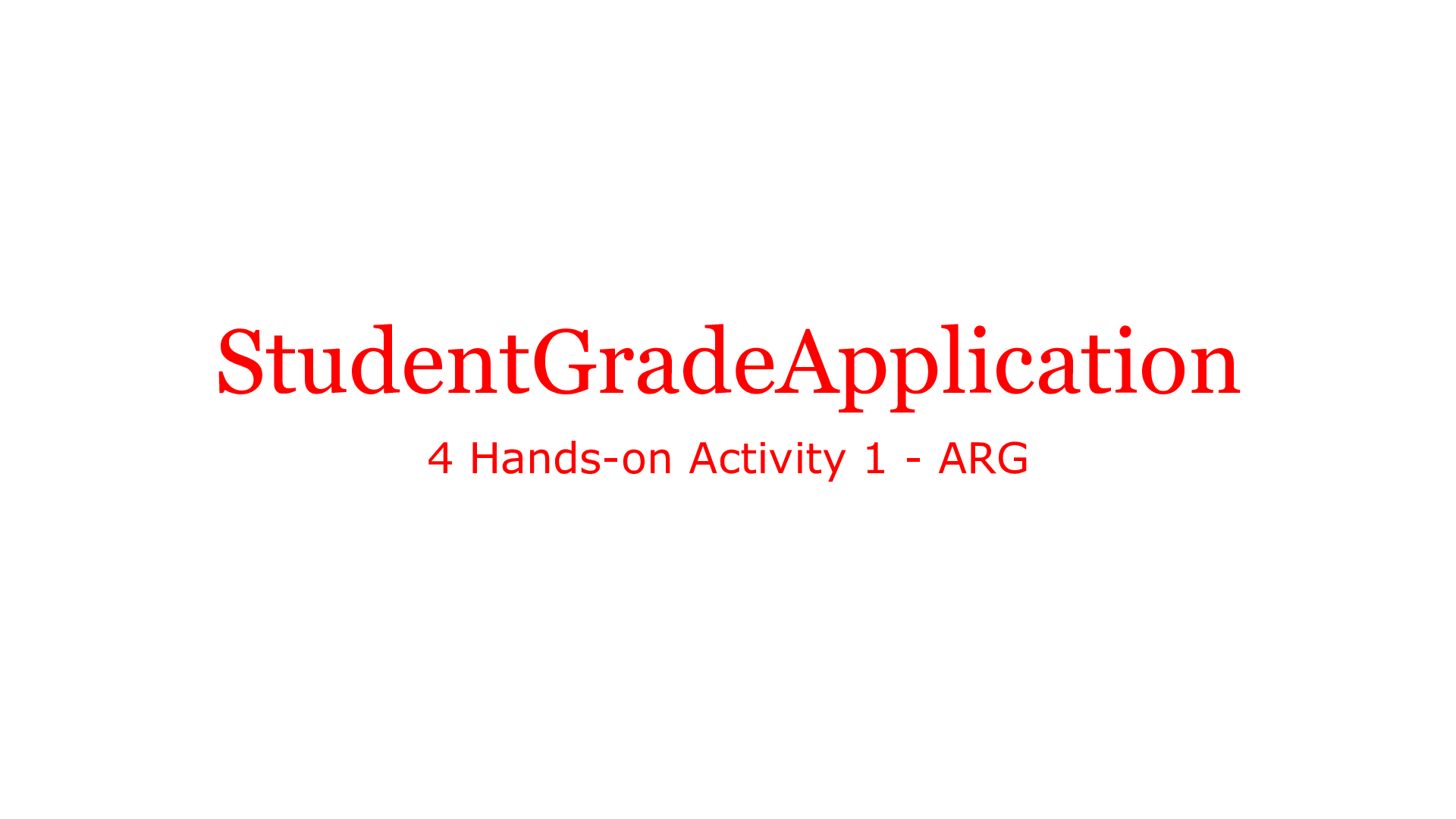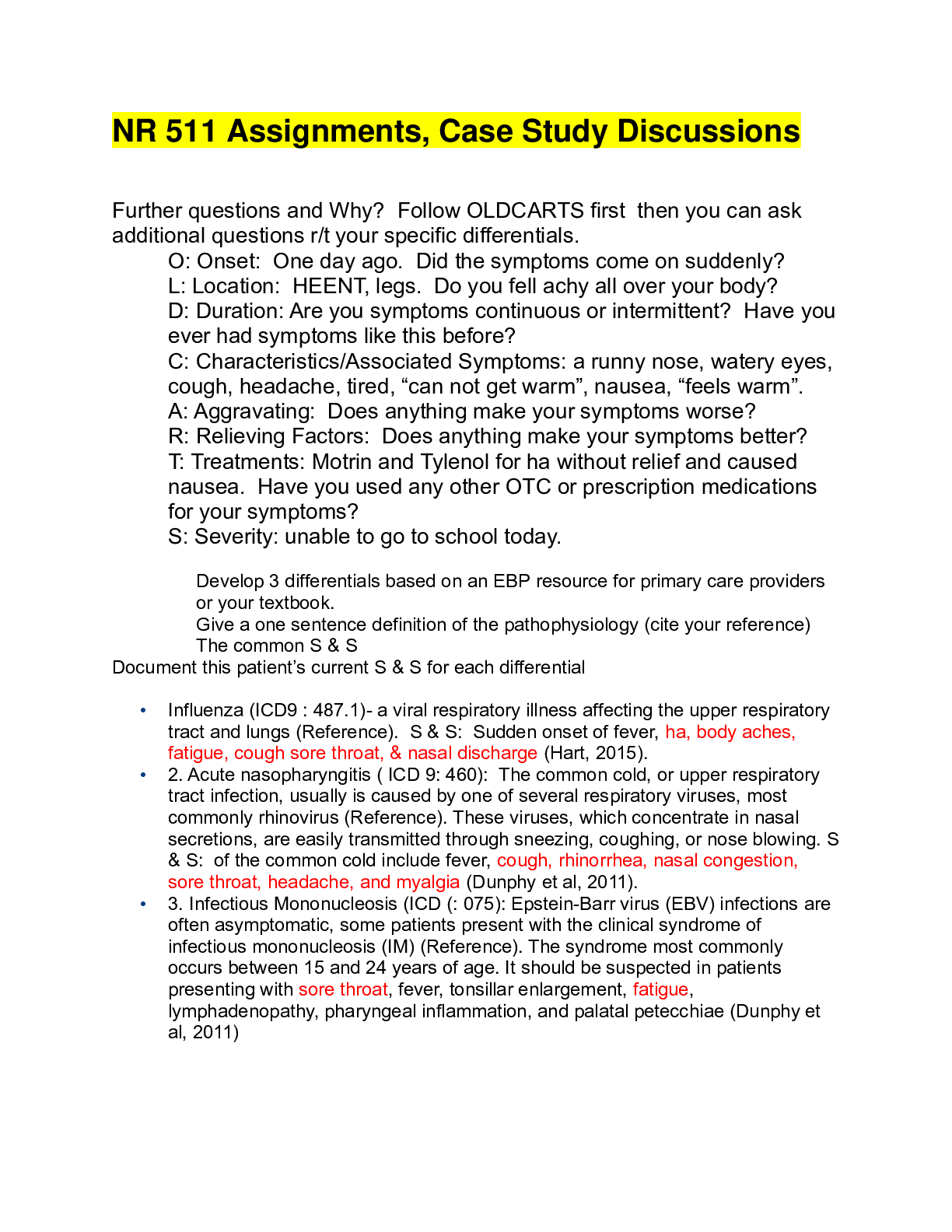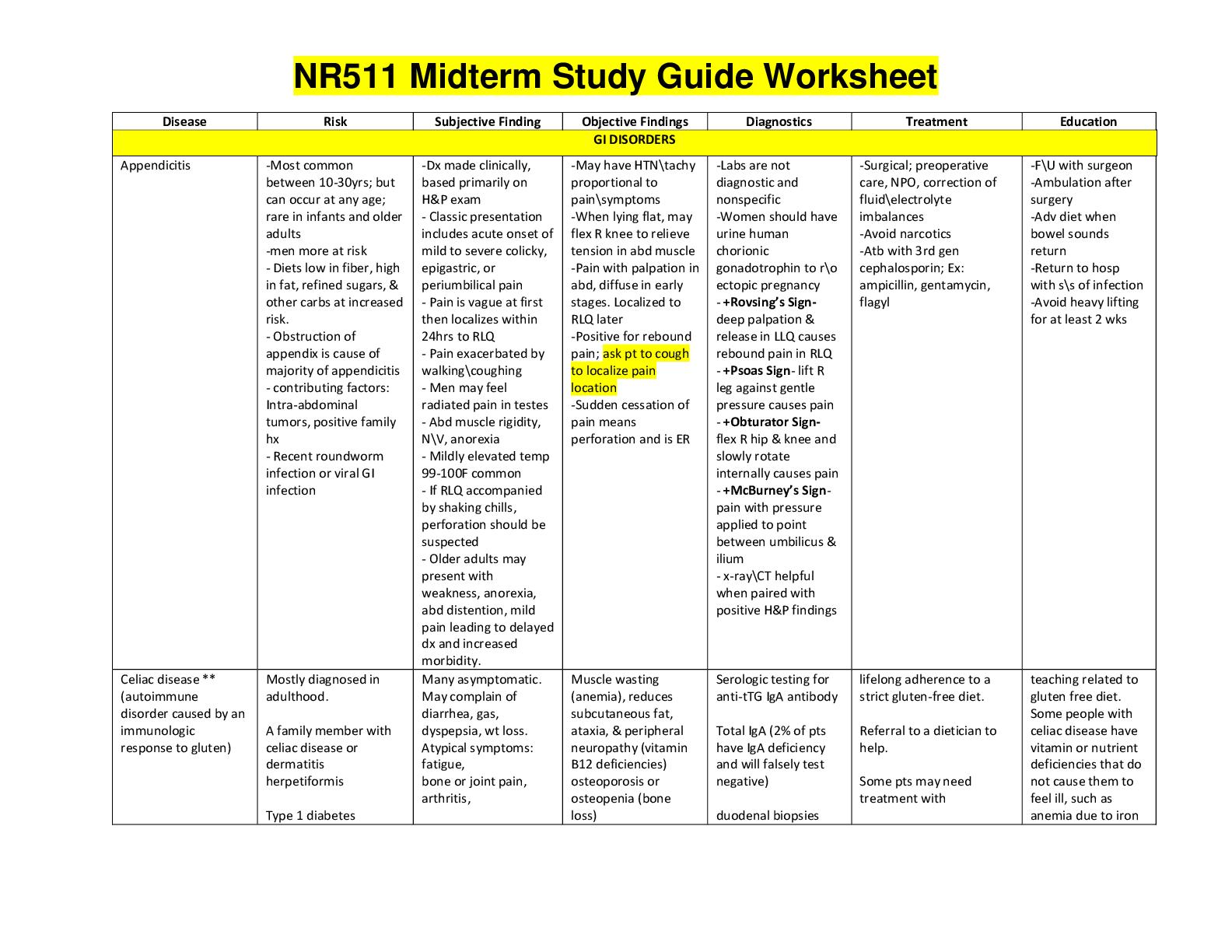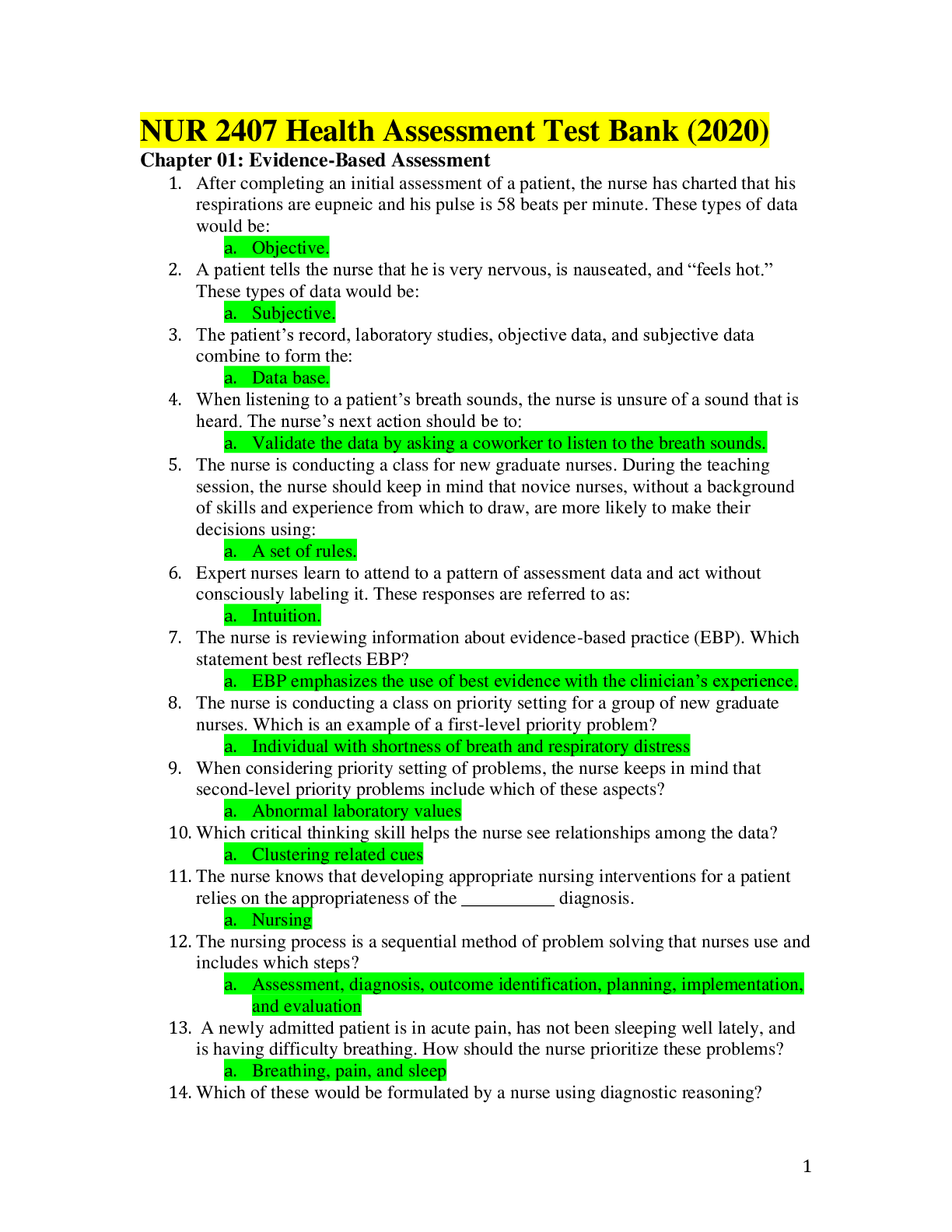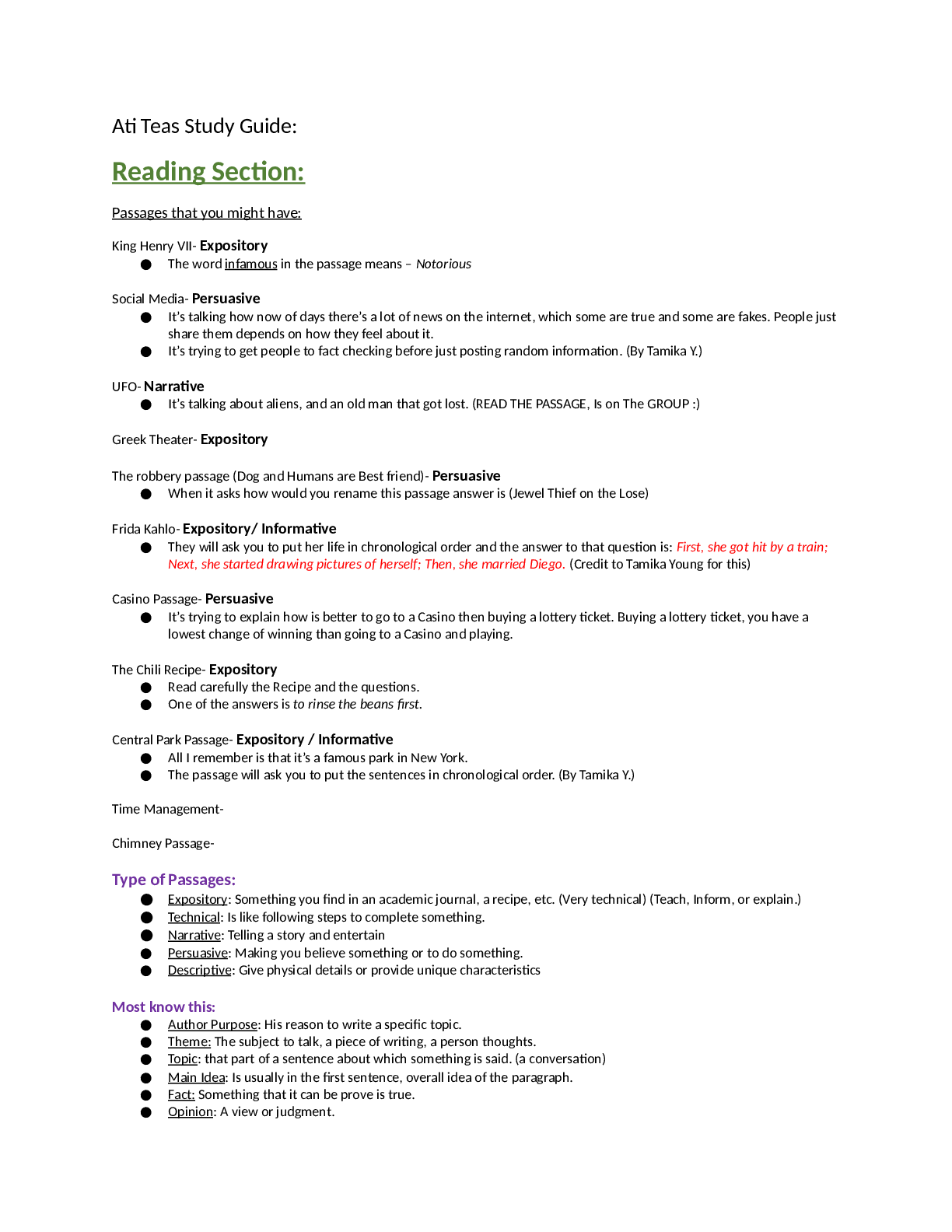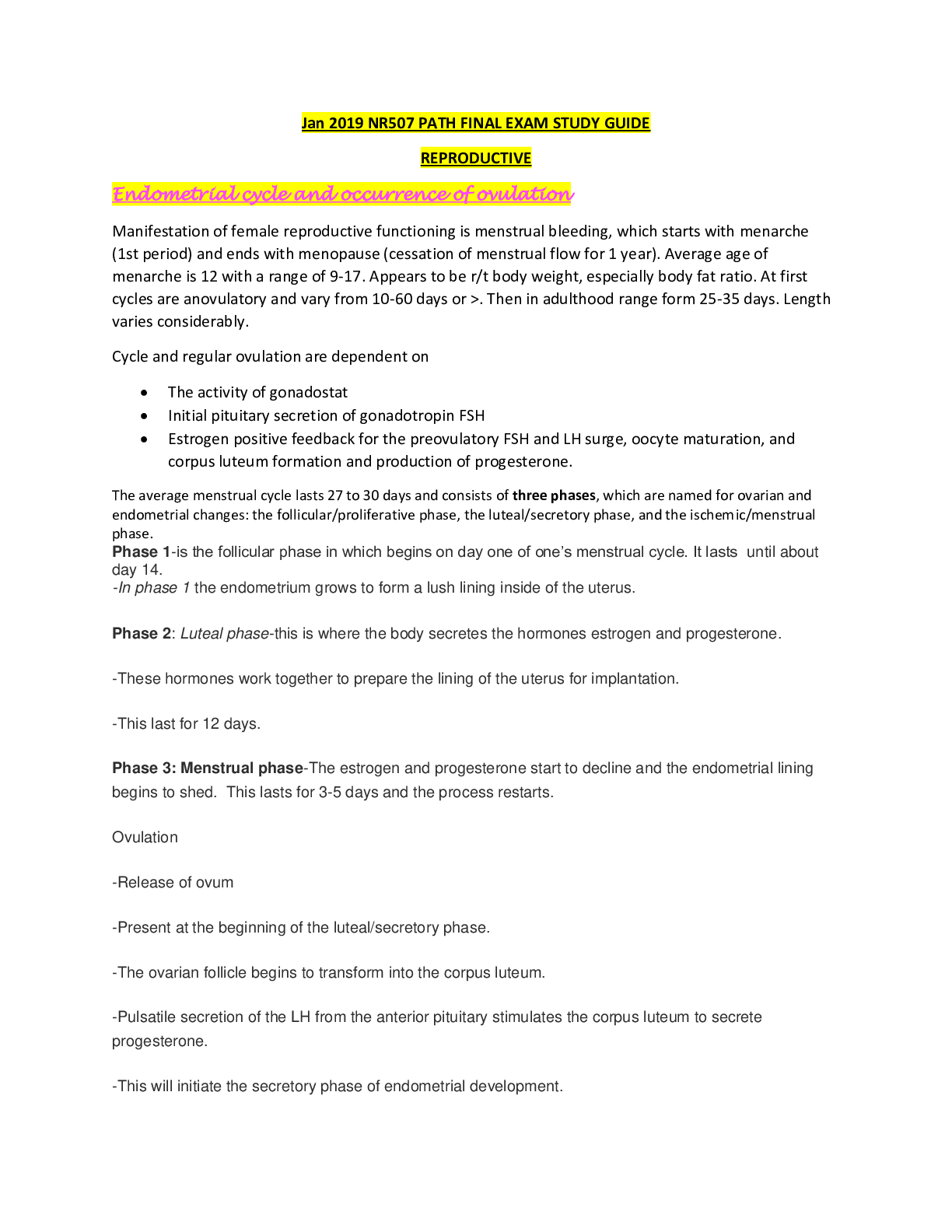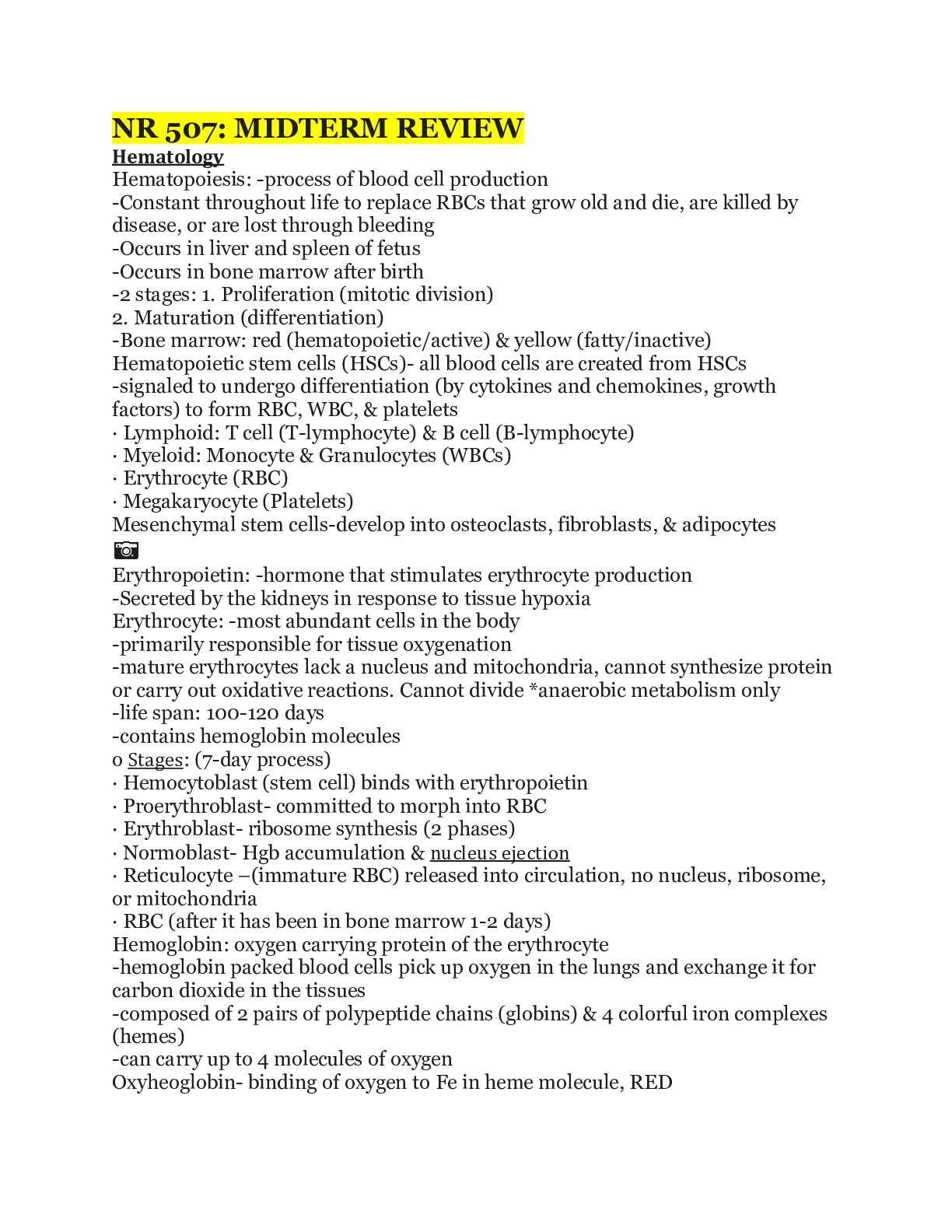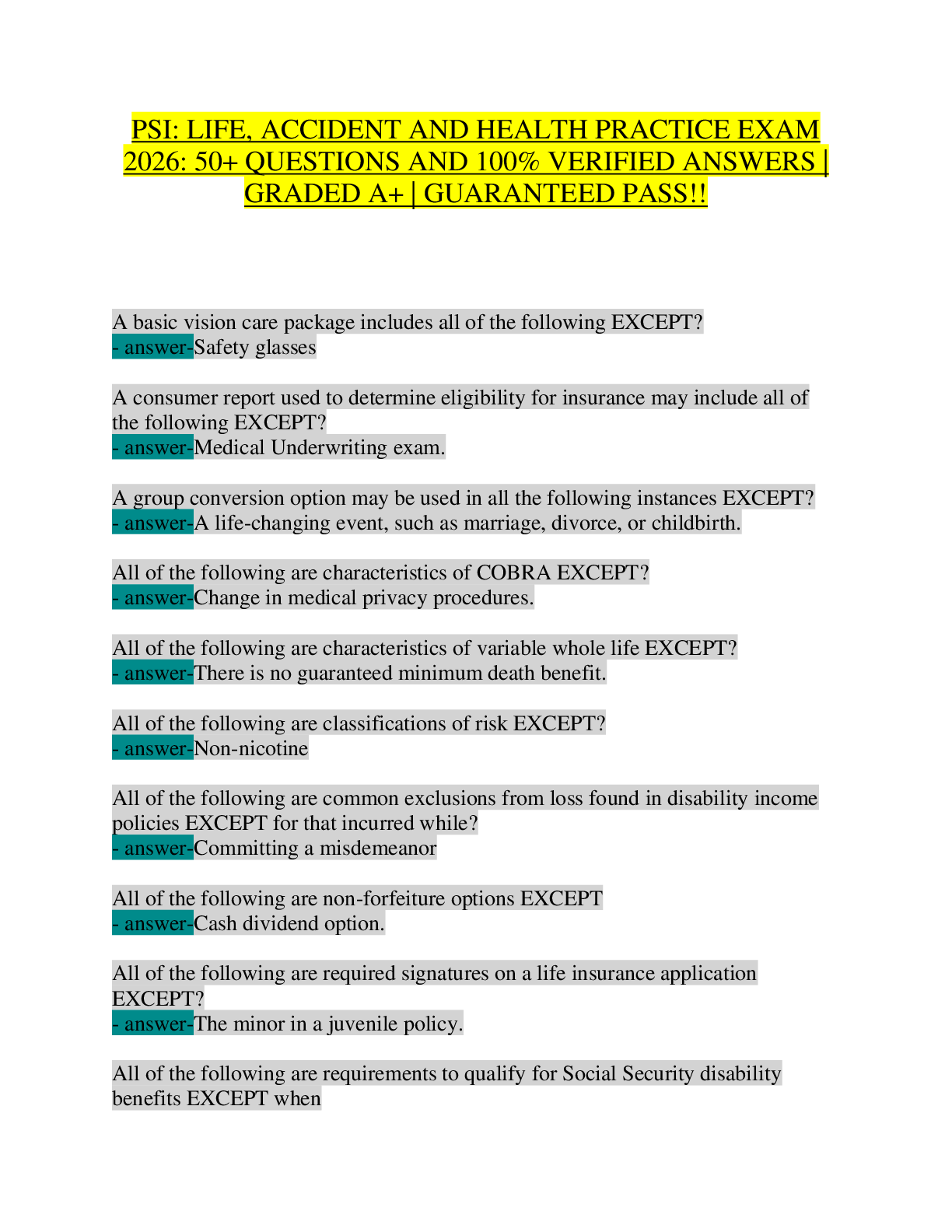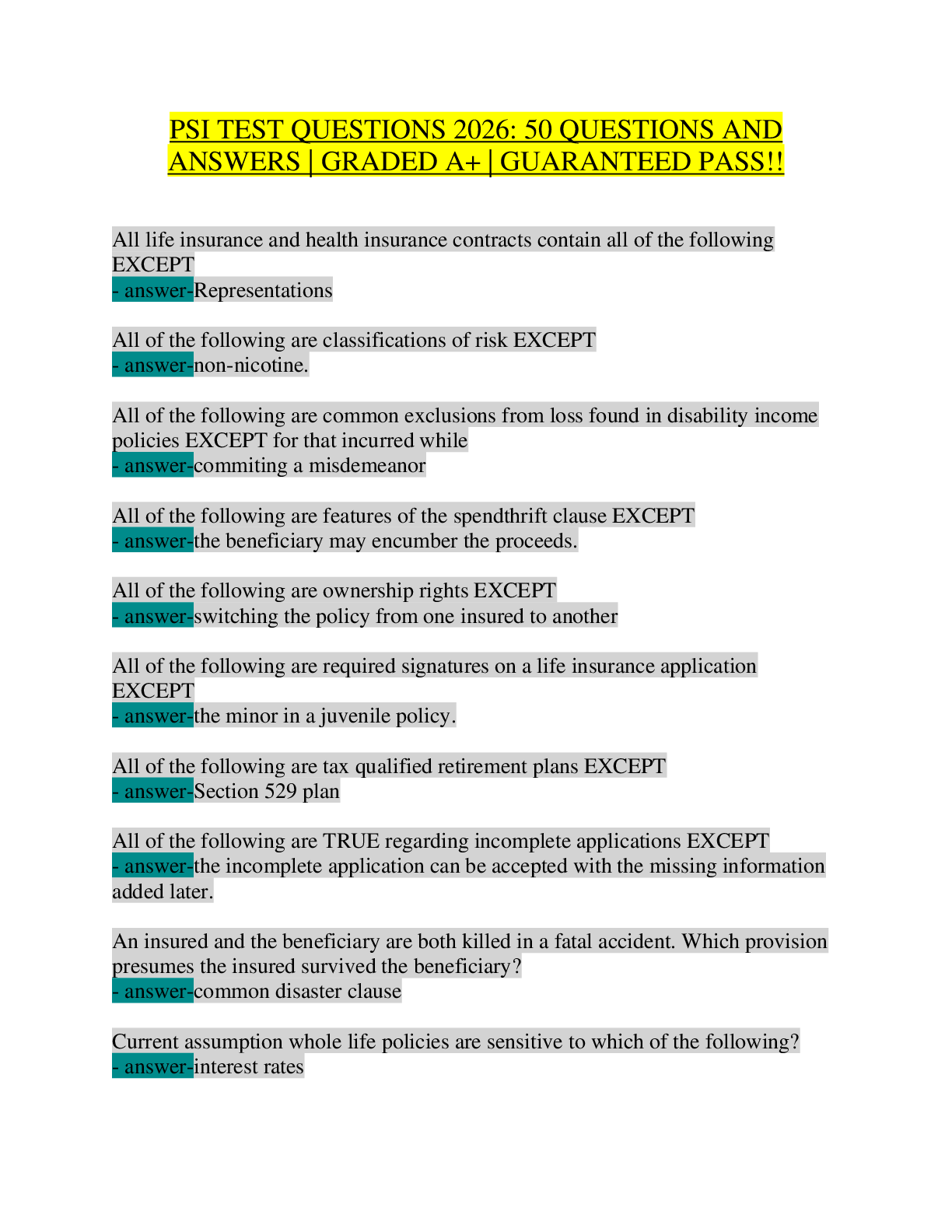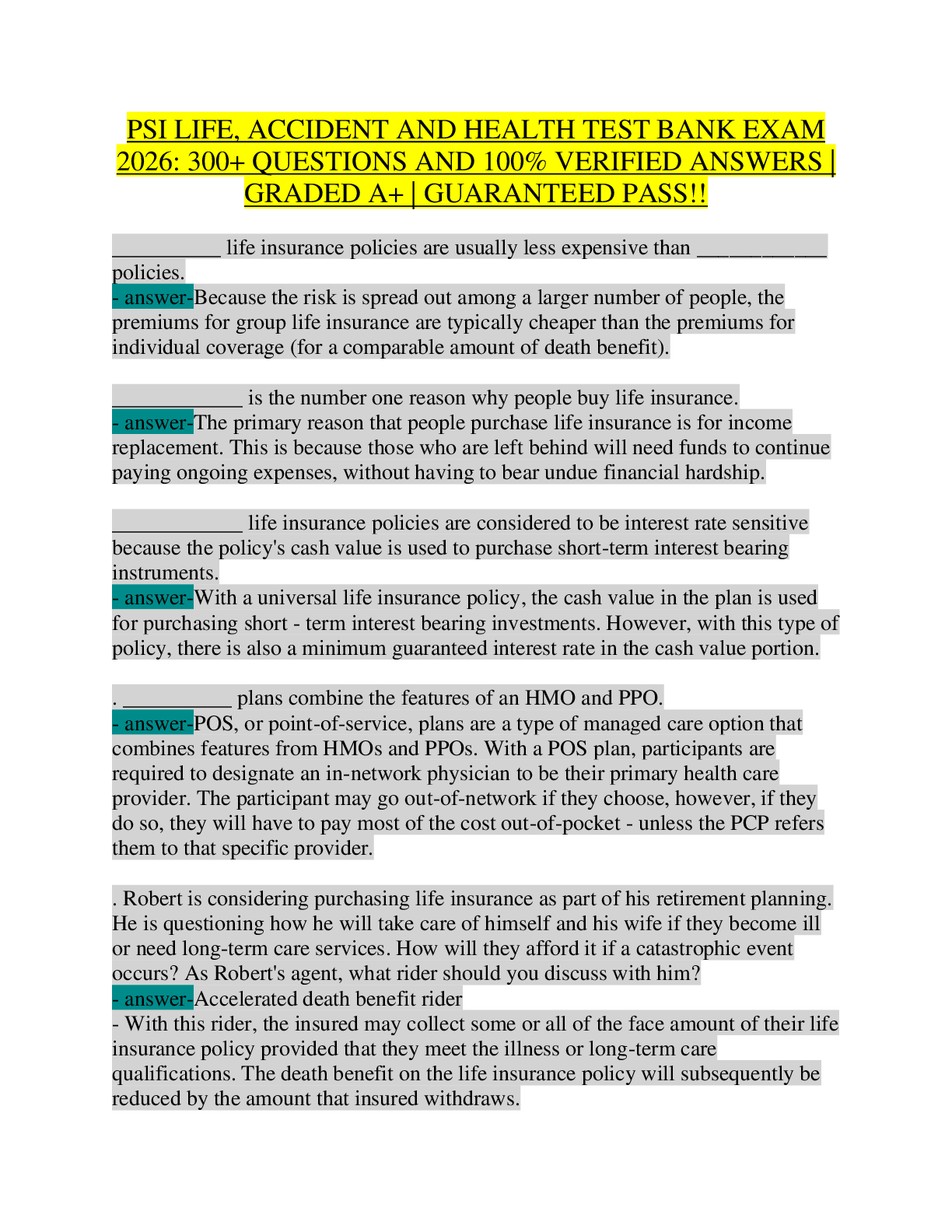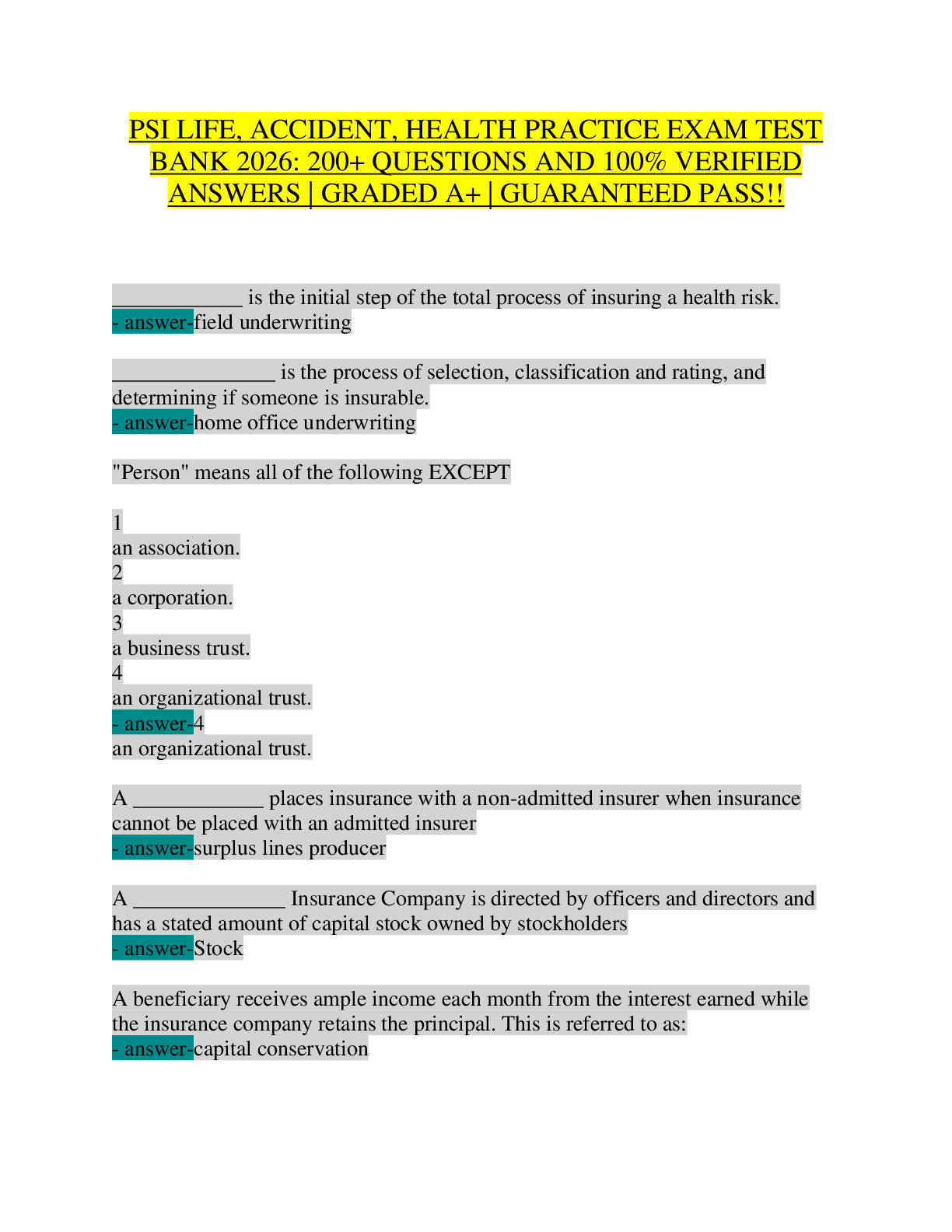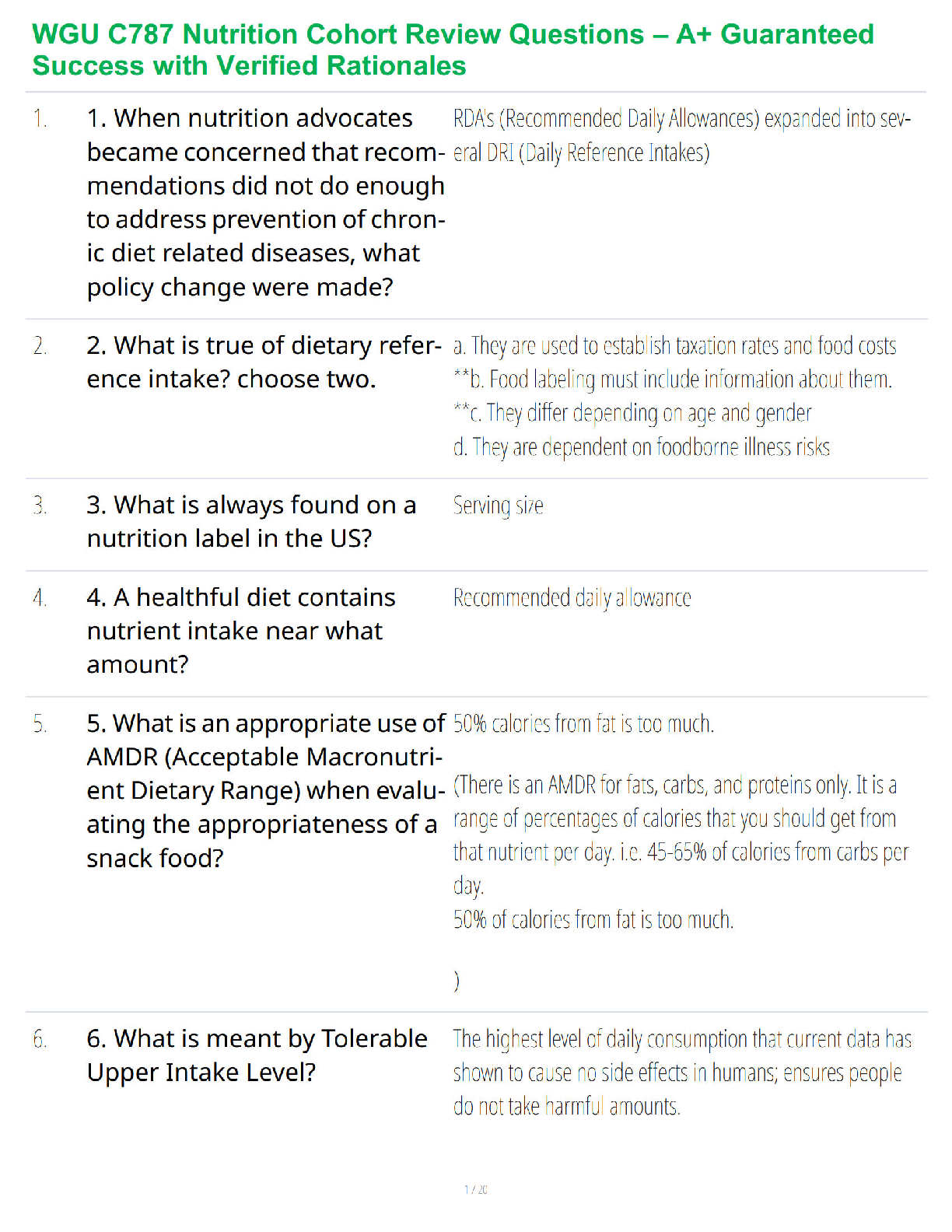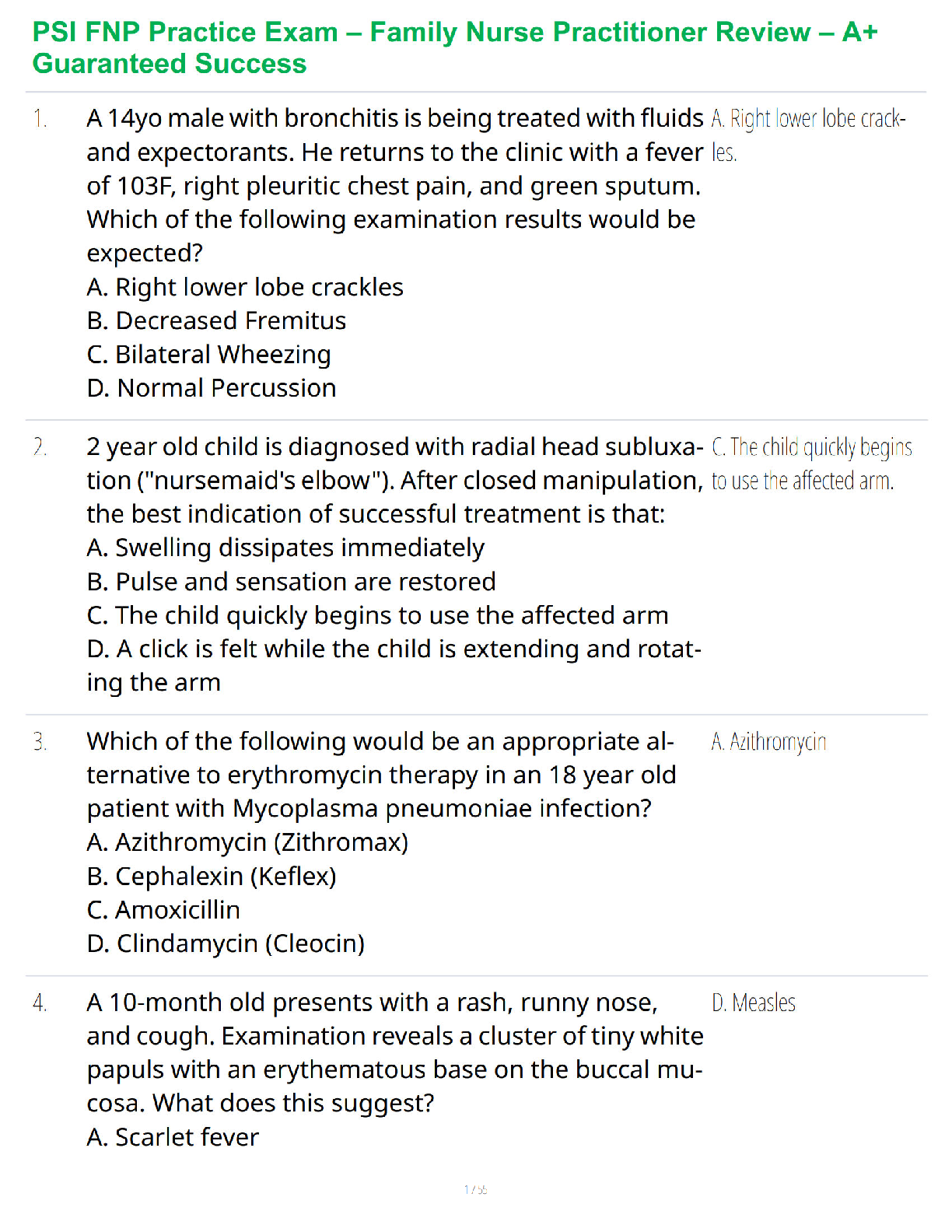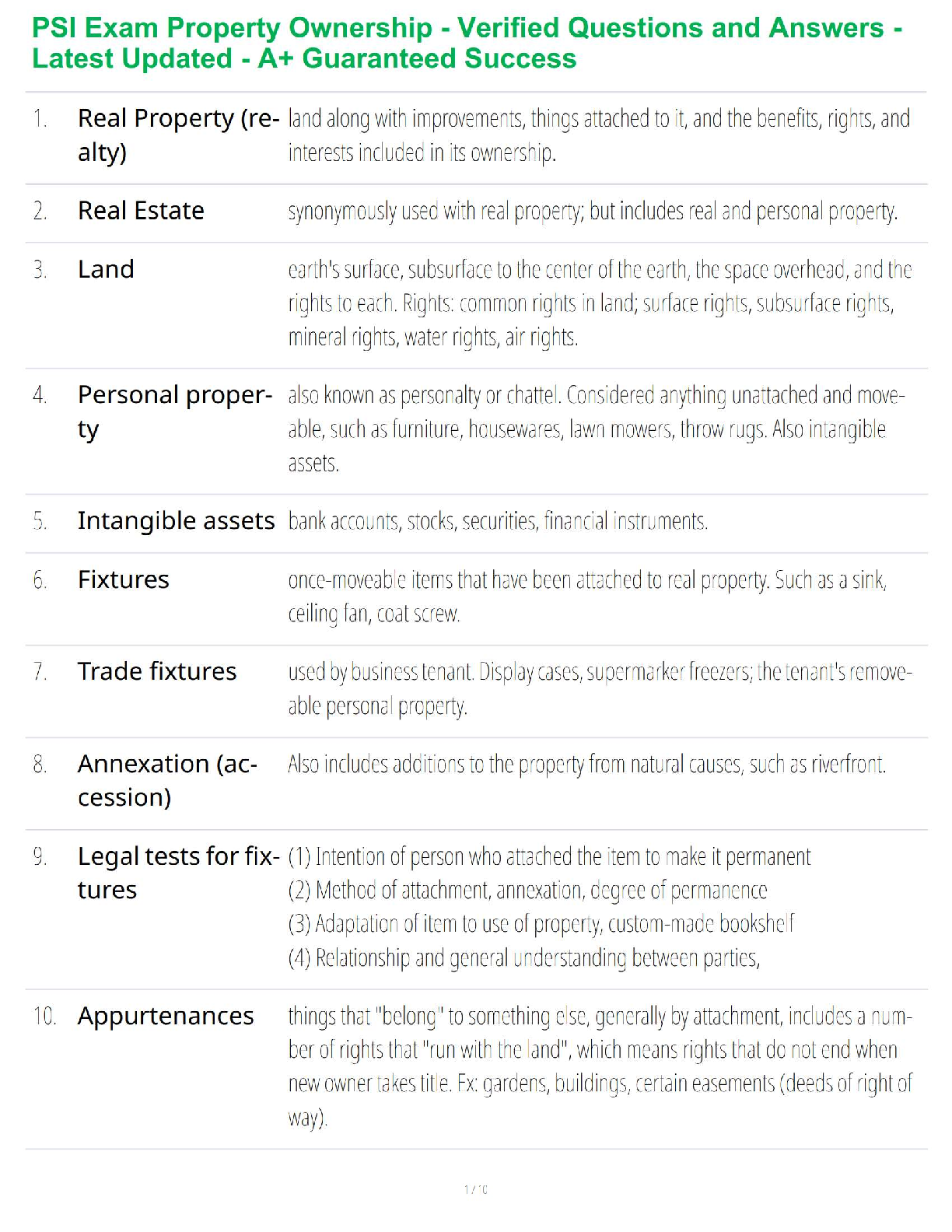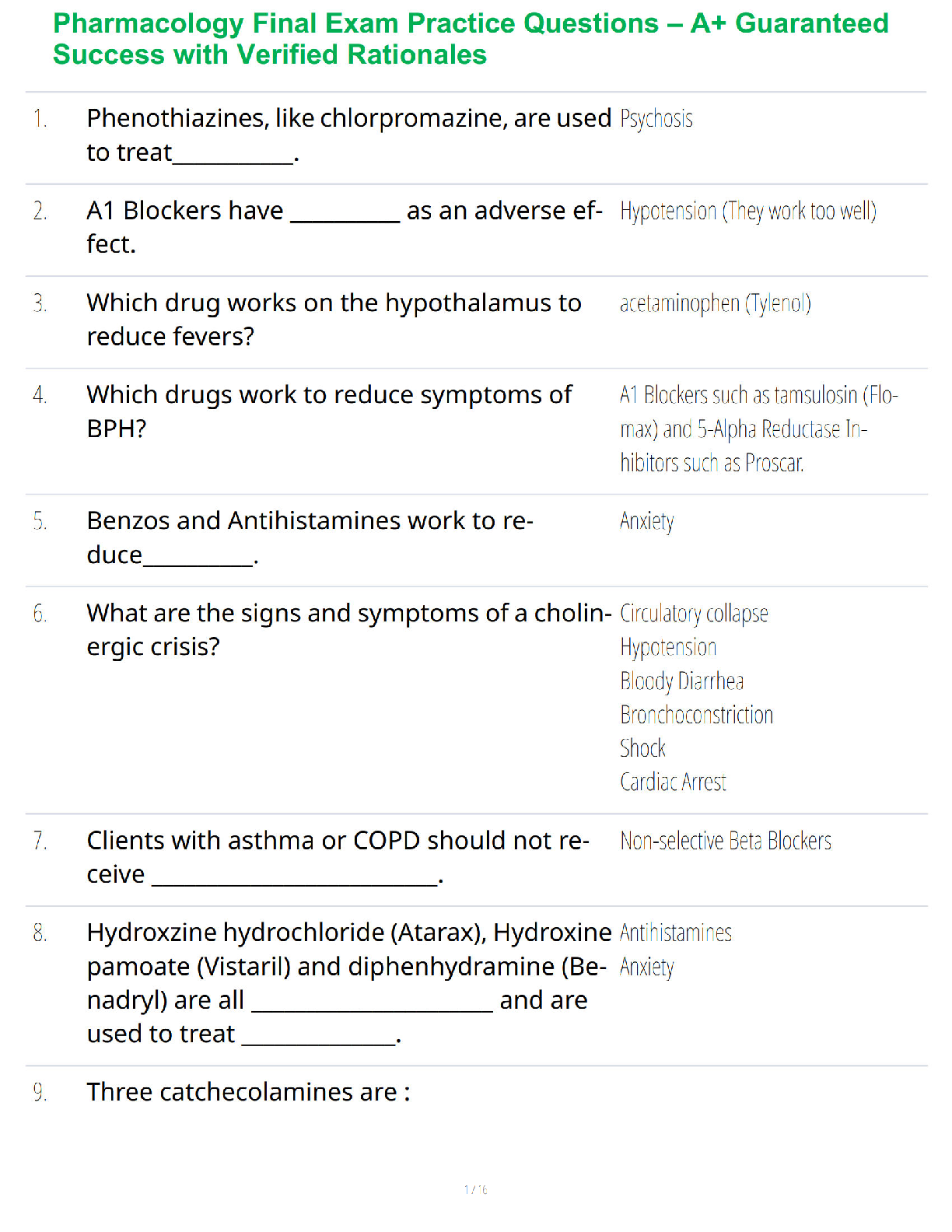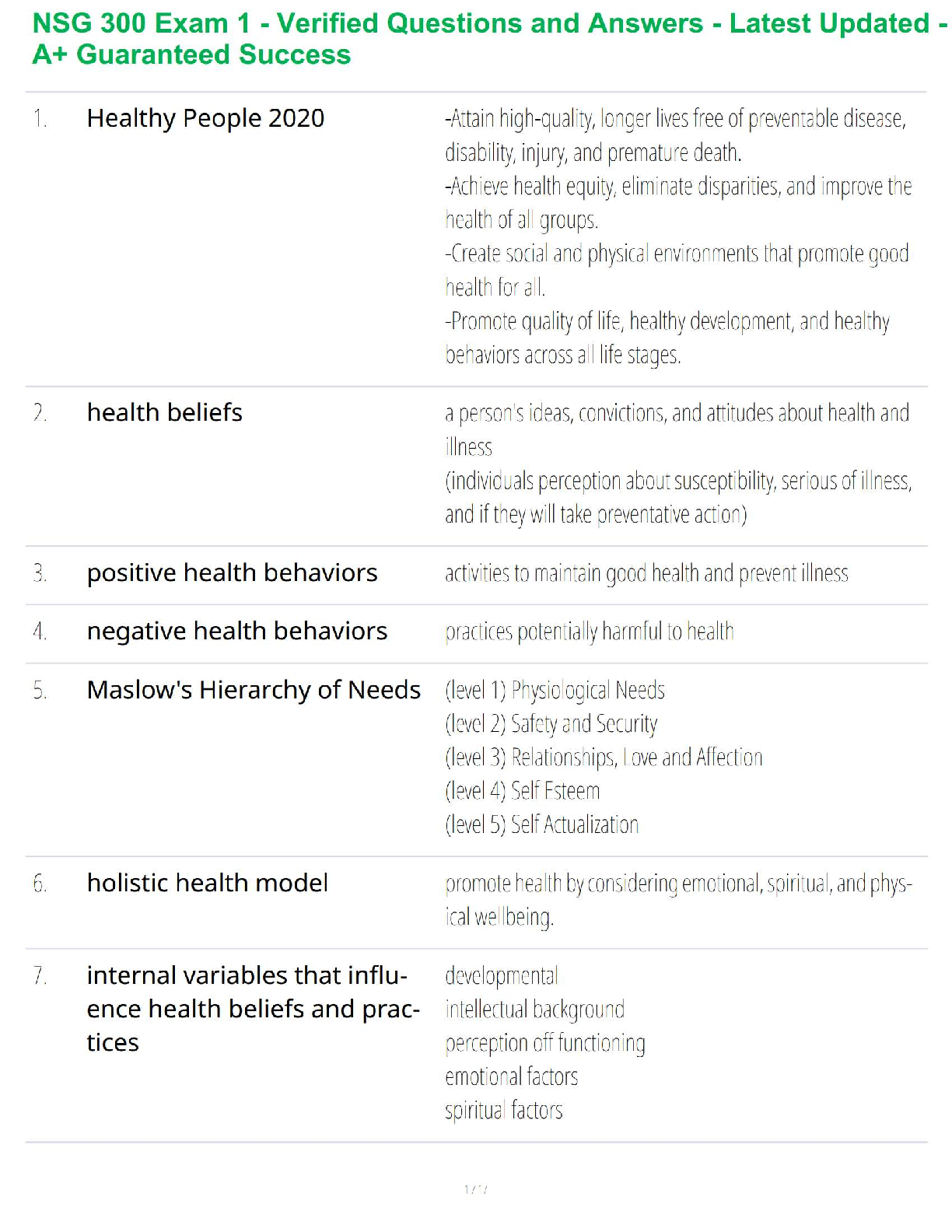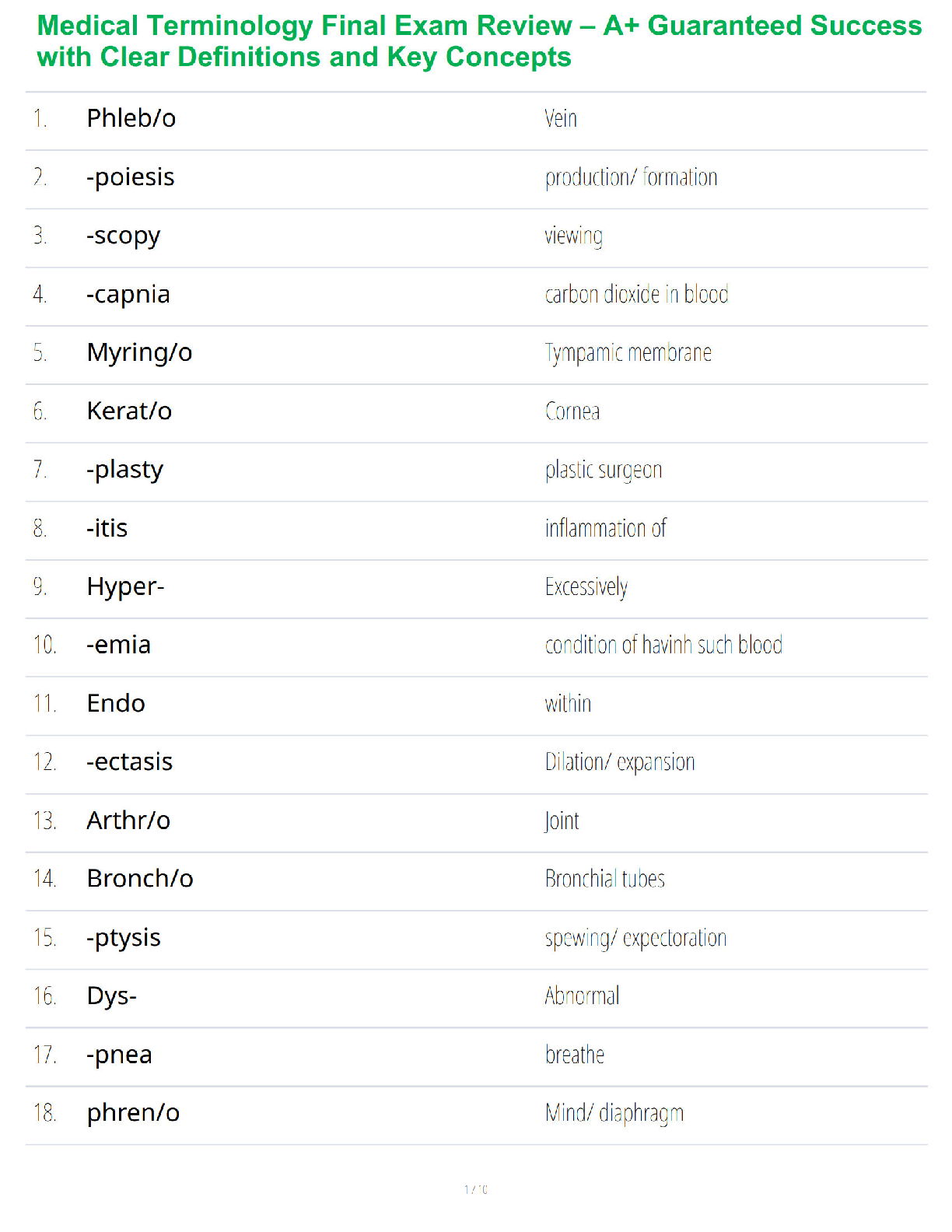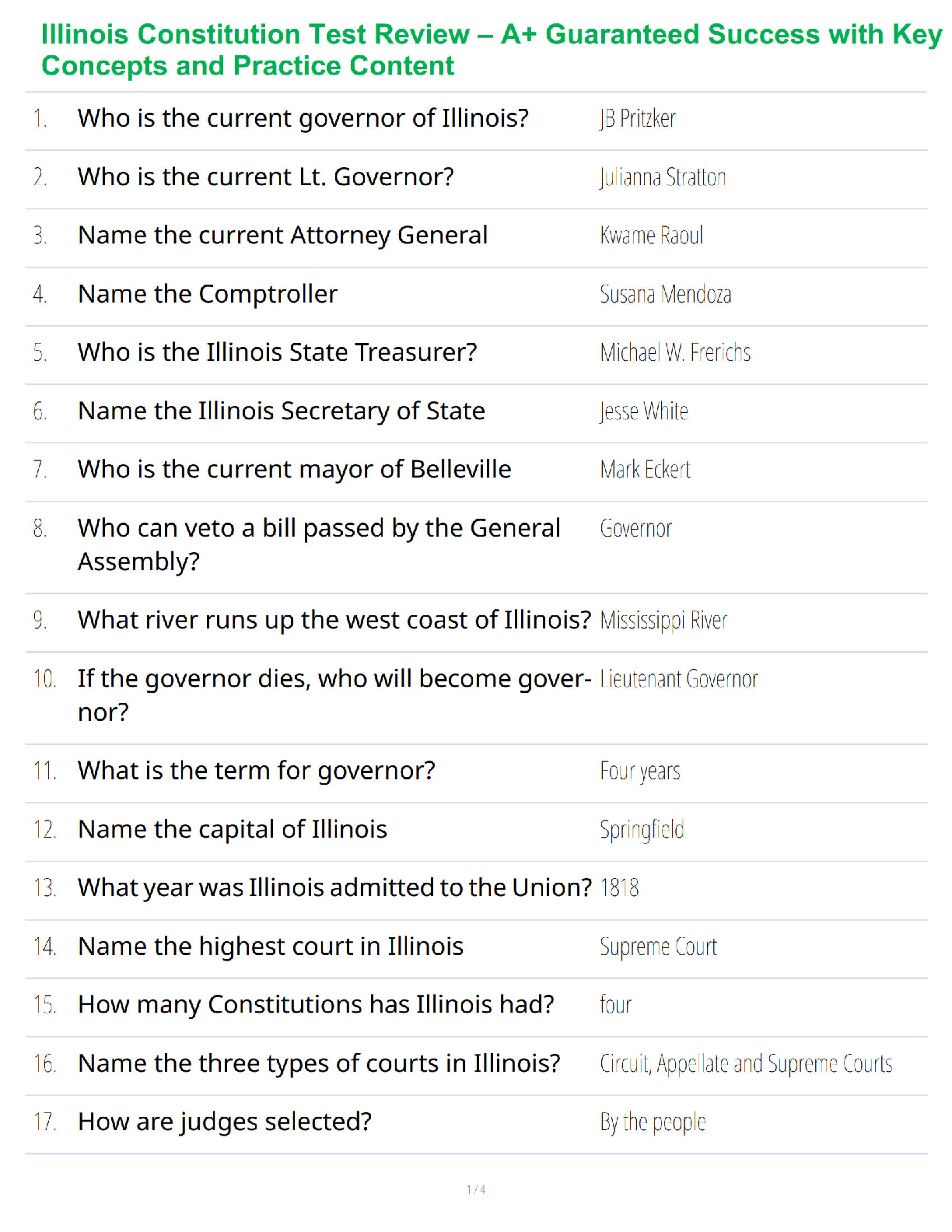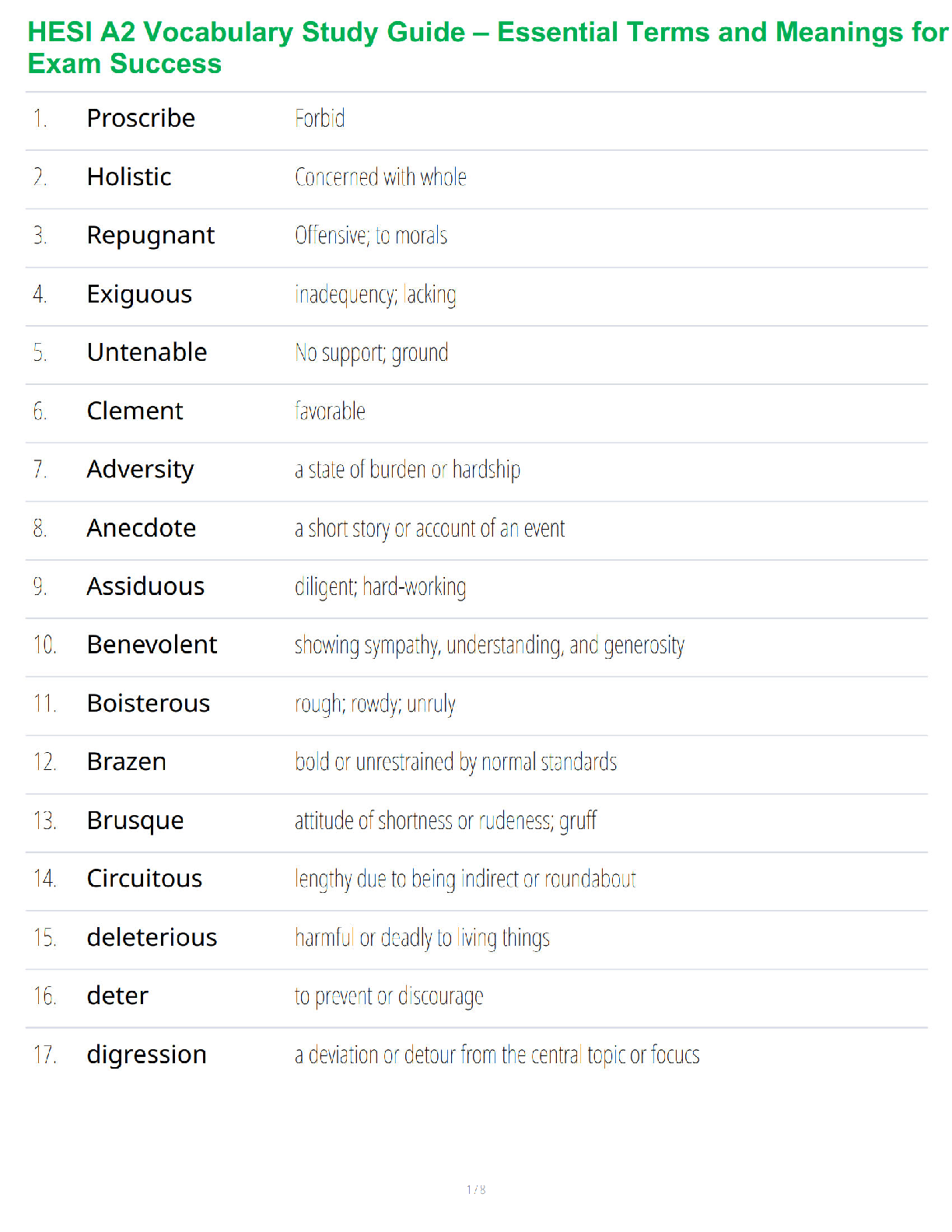TEAS Test Study Guide: Science
Cell Cycle
· Mitosis = “daughter cell” exact replica
· Interphase (G1, S, G2)
· Prophase
· Metaphase
· Anaphase
· Telophase
· Cytokinesis
· Meiosis = “daughter cells” different
...
TEAS Test Study Guide: Science
Cell Cycle
· Mitosis = “daughter cell” exact replica
· Interphase (G1, S, G2)
· Prophase
· Metaphase
· Anaphase
· Telophase
· Cytokinesis
· Meiosis = “daughter cells” different genetic coding
· Only happens in gametes*
· 1st phase
· chromosomes cross over
· genetic material exchanged
· tetrads of 4 chromatids formed
Homologous pairs of chromatids are separated and go to different poles
2 cells go through 2nd cell division
4 daughter cells with different sets of chromosomes
· Haploid : contains half genetic material of parent cell
• Zygote- controls cell differentiation
Tissues
groups of cells
Muscle, nerve, epithelial, connective
1. Epithelial: (joined together tightly) ex. Skin
2. Connective: (dense, loose, or fatty) ex. Bone tissue, cartilage, tendons, ligaments, fat, blood, lymph
Protects & binds body parts
a. Cartilage: cushions & provides structural support
i. Fibrous
b. Blood: transports oxygen to cells & removes waste / ALSO carries hormones & defends against disease
c. Bone: (hard) produces red blood cells
2. Muscle: Support & move body
a. Smooth
b. Cardiac
c. Skeletal
3. Nervous: ex. Brain, spinal cord, & nerves
a. Neurons- control responses to changes in environment
Organs
groups of tissues
ex. Heart = muscle tissue in myocardium; connective tissue in blood; nervous tissue for heart rate; epithelial tissue in membranes
Organ Systems
groups of organs
1. Integumentary (Exocrine system)
a. Skin
i. Sebaceous glands sweat glands
ii. Hair
iii. Nails
b. Protection
i. Protects body from pathogens
c. Secretion
i. Secrete oil
d. Communication
i. Sensory receptors send info. about pain, touch, pressure, and temperature
LAYERS OF THE SKIN
1. Epidermis
a. Most superficial layer of skin
b. Epithelial cells **Does not contain any blood vessels
c. Stratum basale
i. deepest portion
ii. single layer of cells
iii. keratinized
1. waxy protein waterproofs skin
2. Dermis
a. Mostly connective tissue
b. Blood vessels, sensory receptors, hair follicles, sebaceous glands, sweat glands
c. Elastin and collagen fibers
3. Subcutaneous layer/ Hypodermis
a. Connective tissue
i. Binds skin to muscle
b. Fat deposits cushion and insulate
TEMPERATURE HOMEOSTASIS
skin is involved in temperature homeostasis through sweat glands
a. Controlled by negative feedback system
a. Receptor
i. Sensory cells in dermis of skin
b. Control center
i. Hypothalamus
c. Effector
i. Sweat glands, blood vessels, and muscles (shivering)
ii. Evaporation of sweat cools body
***********************************CONTINUED*******************
[Show More]
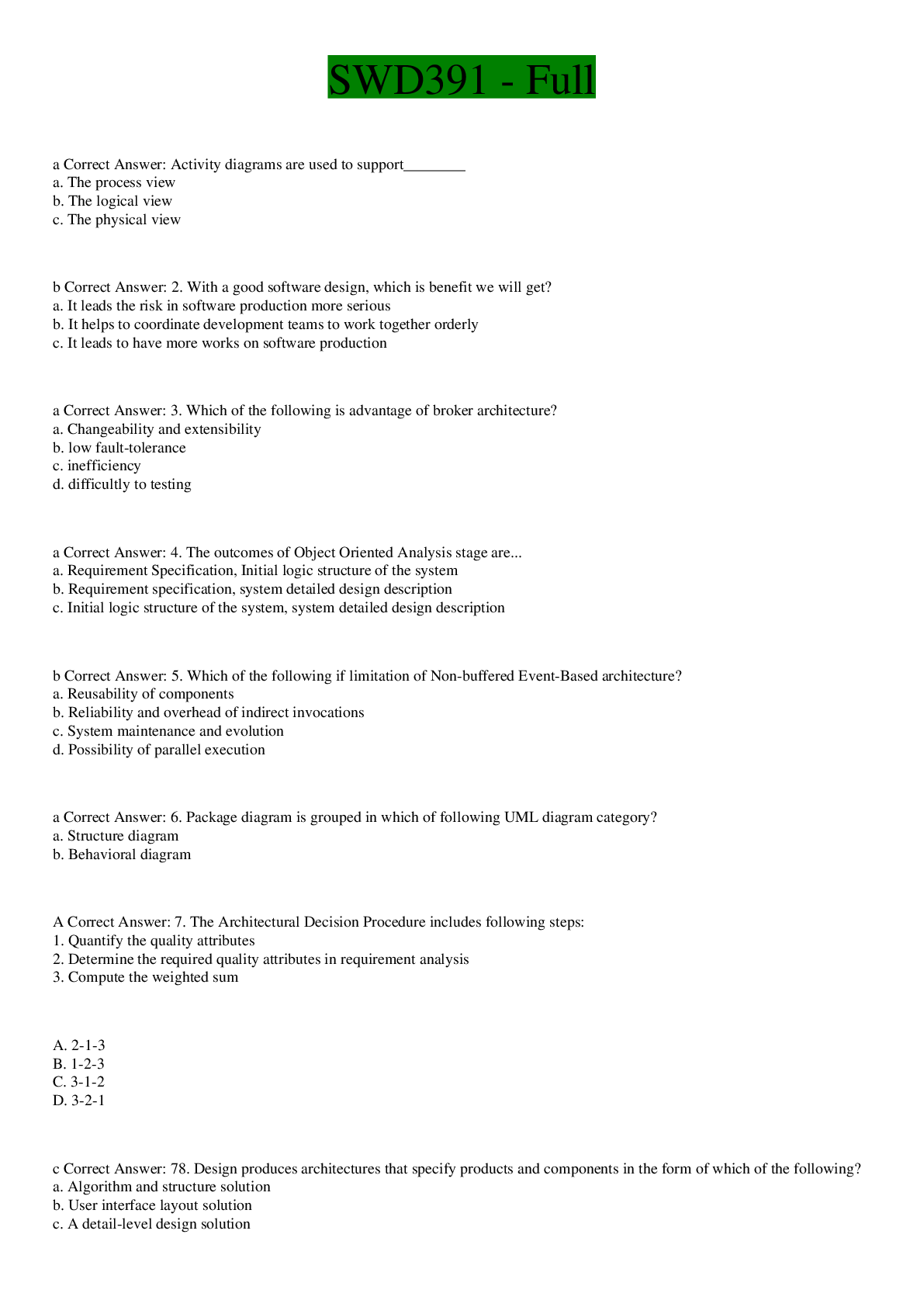

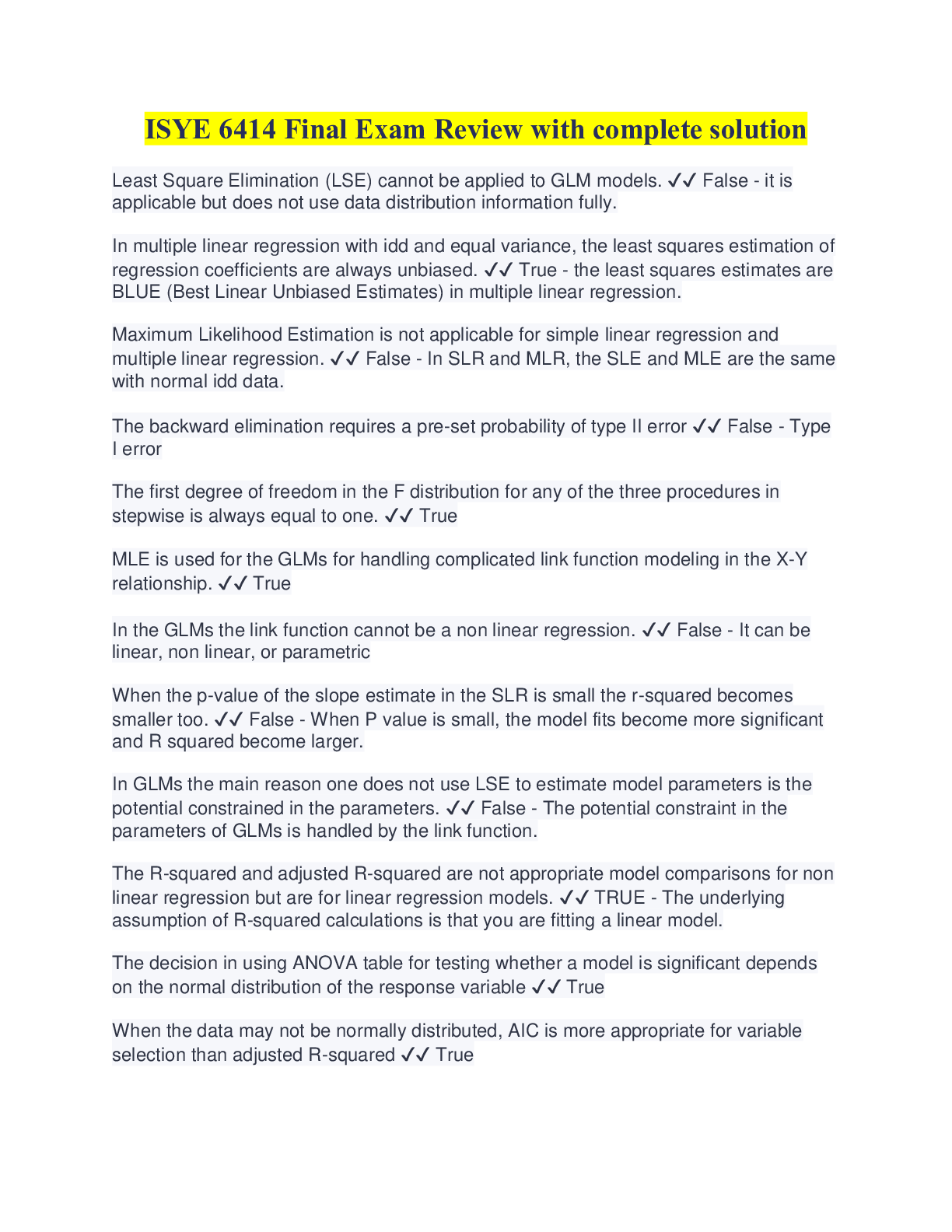
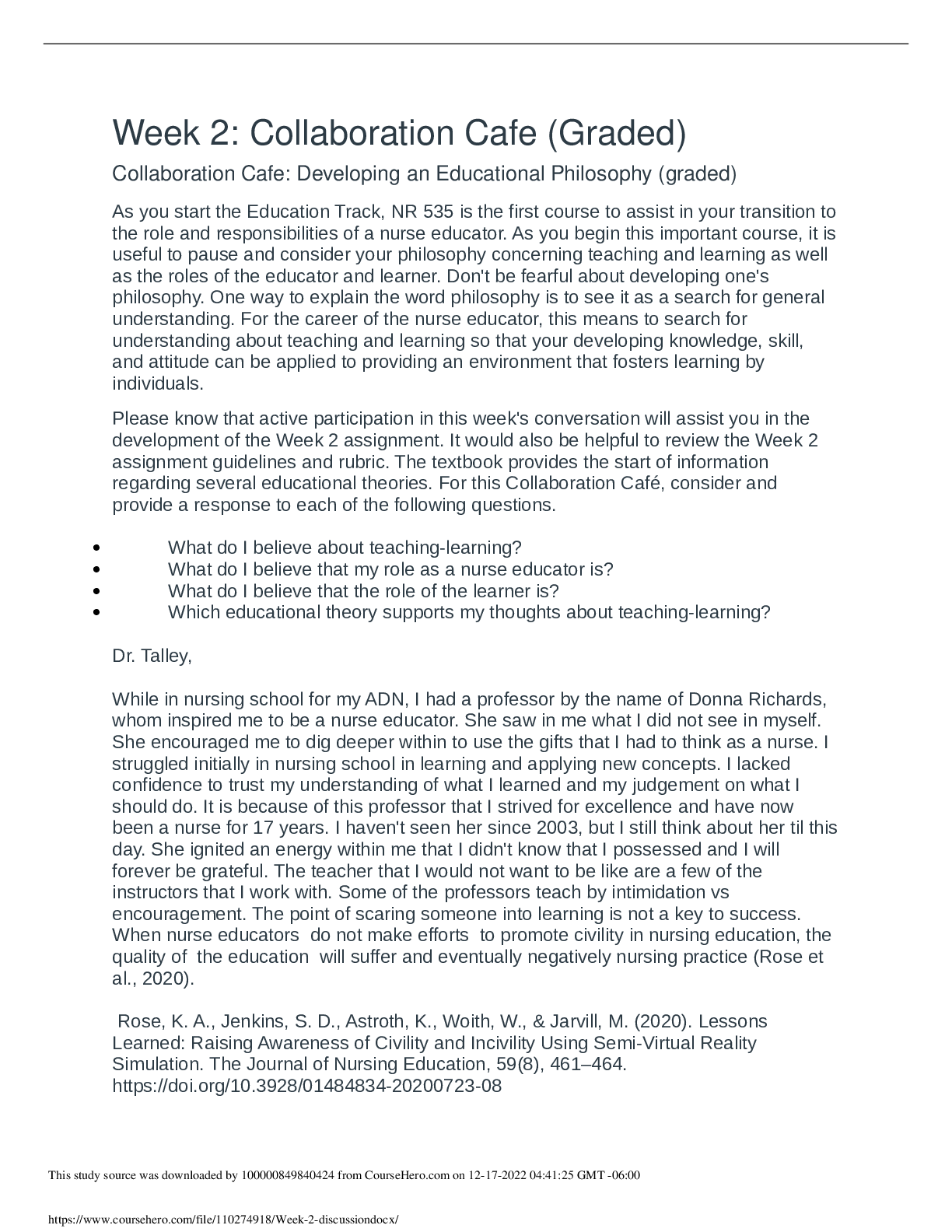
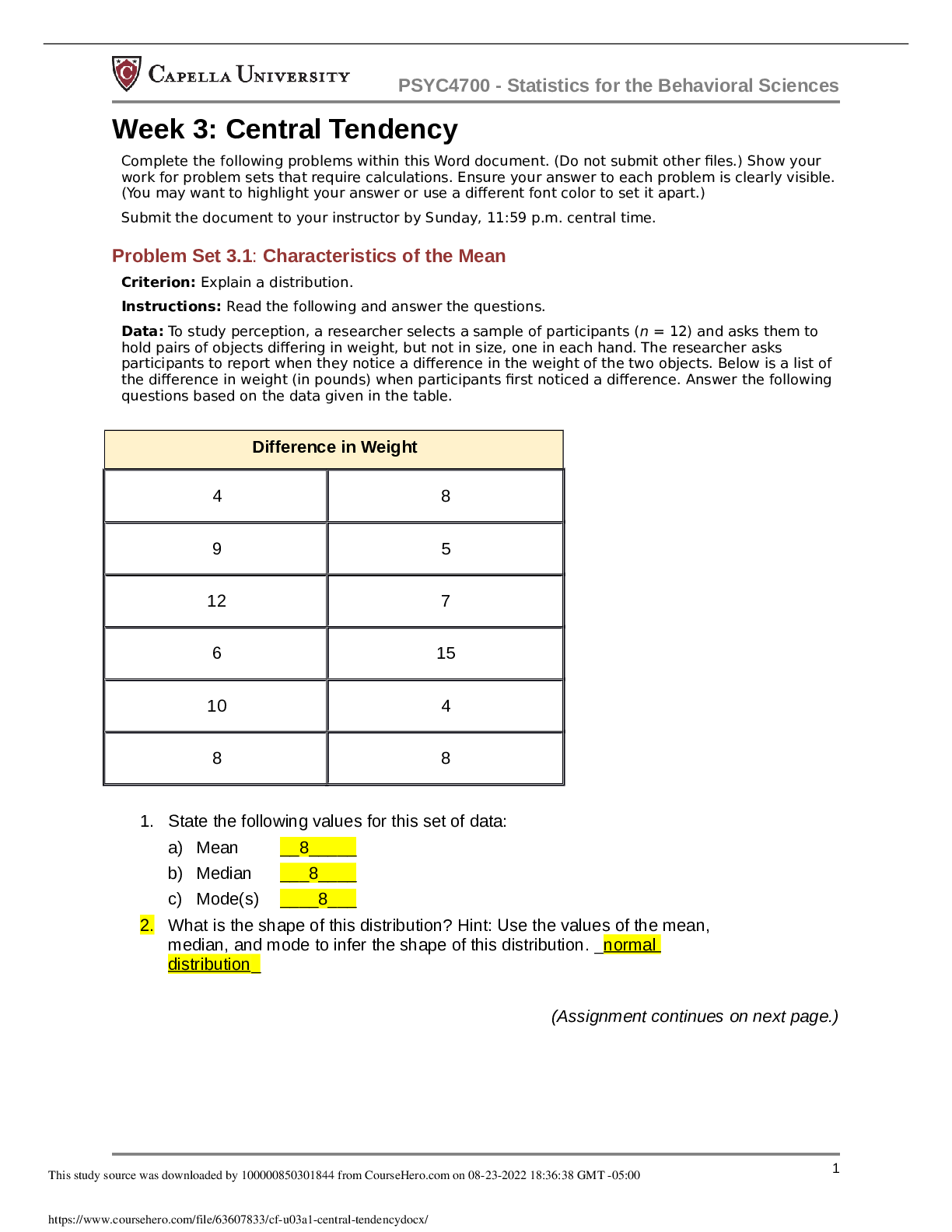
.png)
